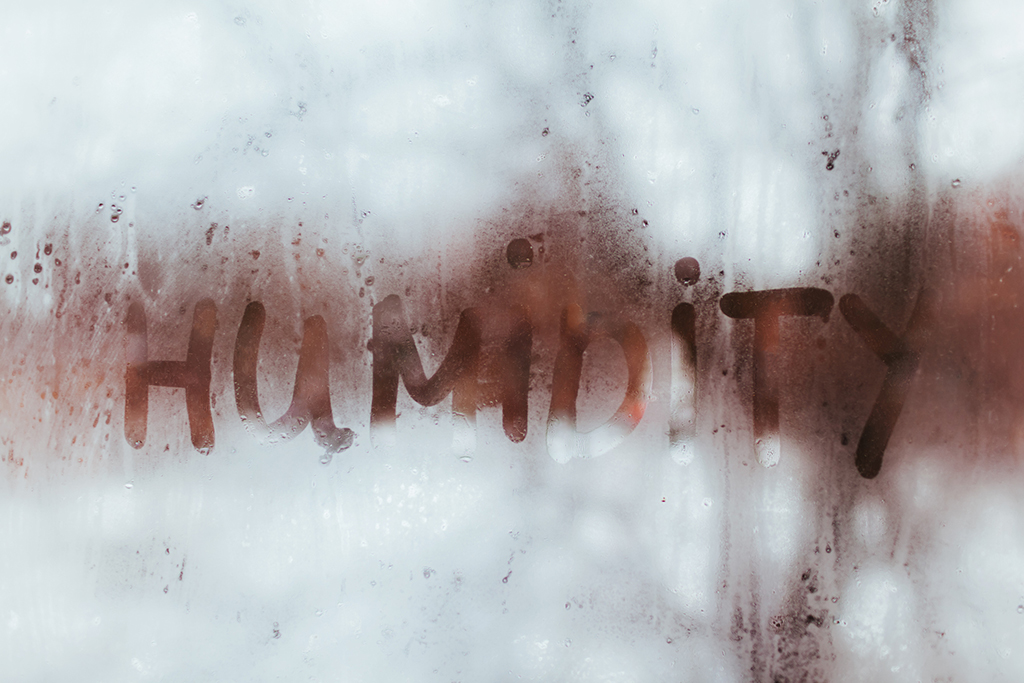We all know that excessive humidity in Odessa, FL, can be very uncomfortable. It’s not great for the physical components of your home either. The warm climate in Florida has plenty of advantages, but humidity can be a problem. Humidity refers to the amount of water vapor in the air. Some effects of high humidity are obvious. Dishes left out in a drainage rack take a long time to dry. Hanging laundry outside to dry may be an exercise in frustration when the clothes still feel damp hours later. Any plumber will tell you excessive moisture in the air also lets mold and mildew thrive. Kitchens, bathrooms, and basements are all prone to mold growth, and they’re also filled with plumbing pipes and fixtures. The same conditions that let mold thrive are also conducive to bacterial growth, especially in warm climates.
Optimal Humidity
Indoor humidity should be between 30 to 50 percent. If the air is too dry, people feel uncomfortable and may even experience sinus headaches or nose bleeds. Too humid, and we feel sticky and people with respiratory disorders may find it hard to breathe. Dehumidifiers are helpful to reduce humidity, but a small unit may not be enough to counter summer heat and humidity in Florida. A dehumidifier also can’t make up for other issues, such as leaky plumbing pipes or standing water somewhere inside the house.
Sweating Pipes and Condensation
Sweating water pipes contribute to dampness and humidity. Basements are a common problem area, but damp, wet pipes can occur anywhere in the house. Cold water flowing through the pipes means the temperature inside the pipe is much lower than the surrounding air. It’s the same process that leads to drops of water on an icy cold drink. Condensation forms on the outside of the pipes and drips onto the floor. Heavy condensation can lead to puddles on the floor. It can even cause discoloration and water damage in the surrounding area.
Identifying the dripping pipes is the first step in solving this problem. It’s a good idea to call your plumber. A plumbing professional can locate the most likely problem areas quickly. You’ll need to have direct access to the pipes, which is another good reason to call a plumber. It may not be easy to access pipes inside ceilings or walls, but the pipes need to be exposed to fix the problem. Your plumber may need to cut drywall or remove sections of finished wall to access plumbing pipes.
Insulation
Insulation is the best way to fix sweating water pipes. It stops warm, moist air from making contact with a cold surface filled with water. Your plumber can wrap any exposed or sweating pipes in foam insulation. The insulation is available in various lengths and thicknesses, and your plumbing expert can also cut pieces to fit. As a bonus, insulated pipes are also much less likely to freeze in cold weather. Freezing isn’t as likely as humidity in Odessa, FL, but the weather can reach below freezing temperatures occasionally. It only takes one cold snap to create a mess if frozen pipes burst.
Plumbing Interventions
Identifying and repairing problems that let excessive water enter or exit pipes is another step in the process. This could include dripping pipes, leaky faucets, and leaks in more central pipes that let water drip into exterior walls or the foundation of the house. Sometimes problems can be repaired quickly. Your plumber may tighten faucets or replace loose connections. You may need to repair the gutters as well. Overflowing or blocked gutters trap water and give it plenty of opportunities to get inside your home. Your plumber might suggest waterproof sealants for the basement floors and walls as well.
Sump pumps can be a lifesaver if standing water is a common problem in your home. Water can enter basements and crawl spaces during heavy rain. However, even moderate rainfall can lead to minor flooding if the ground is saturated. You may notice water entering your home more often during spring and the early summer months. A sump pump in the basement or a crawl space removes standing water that could be a major contributor to humidity in your home.
AC Units and Lifestyle Changes
Air conditioners are a major aspect of controlling humidity. An AC unit produces cool air, but it also removes moisture. Although AC units remove moisture automatically while fulfilling their main purpose, excessive humidity can take a toll and increase wear and tear. Reducing humidity by other means takes some of the pressure off your AC.
Lifestyle changes can also reduce moisture in your home. Simple changes such as covering pots while cooking and keeping interior doors open to allow air circulation can reduce humidity. Multiple dehumidifiers are also much more effective than a single large unit. You can try to use dehumidifiers in the basement, kitchen, laundry room, and bathroom to keep moisture levels down, but that’s a big job for an appliance.
Opening windows, installing fans, and improving air circulation in secluded areas can reduce humidity and give dehumidifiers a chance to tackle the remaining moisture. The goal isn’t zero humidity. That likely isn’t possible and wouldn’t be desirable anyway. Most people prefer humidity on the lower end of the 30 to 50% scale when temperatures creep up over 80 to 90 degrees. People with respiratory issues also prefer lower humidity. Ask your plumber how to adjust dehumidifying measures to reach your preferred goal.
Contact the professionals at Holistic Homes, LLC, to speak with plumbers and other professionals. They can help you create a plan to make your home in Odessa, FL, more comfortable and efficient. Experienced plumbing professionals know how to control humidity without disrupting daily life or limiting daily tasks such as washing clothing, cooking, or showering.
Photo By Maryviolet at istock



